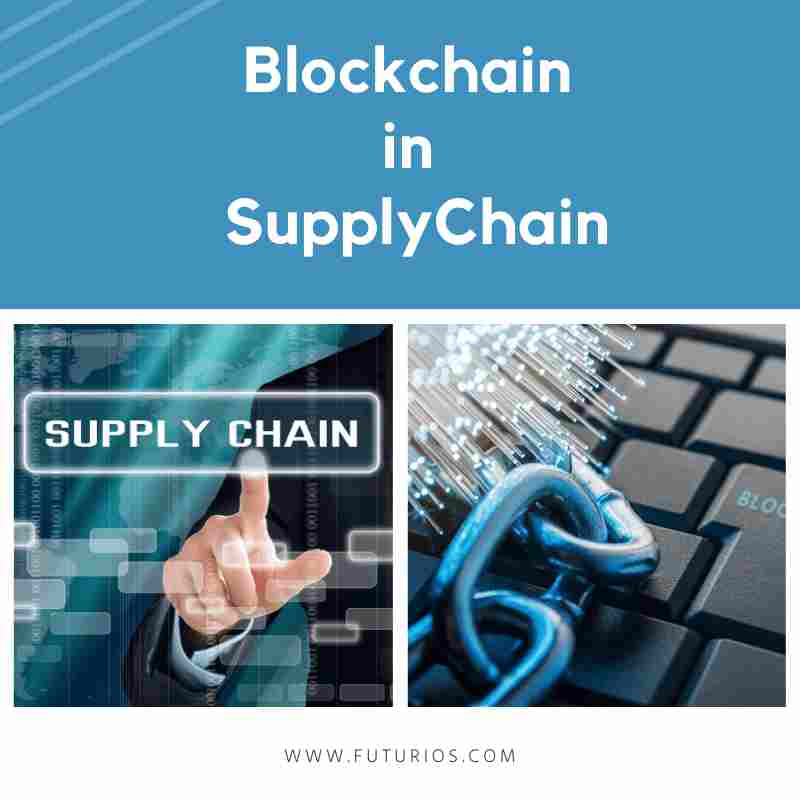Block Chain in Supply Chain

Blockchain in supplychain , Blockchain is a decentralized ledger of all transactions across peer to peer network. Using this technology, participants can confirm the transactions without the need of central certifying authority. It is a distributed database that maintains a continuously growing list of data records.
Supply Chain Management which demands efficiency, traceability, coordination, records keeping, and always works to expedite the process, here, Blockchain has the potential to solve all these challenges and protect the business from malicious doings while supporting better performance.
Till now most of the companies rely on ERP (Enterprise Resource Planning) Systems but the drawback of this system is: When there are 3 parties involved in a transaction, they can’t be recorded in a financial ledger with the involvement of all 3 which results in disconnection of manual audits and inspections from 3 flows. And now it is hard to eliminate Execution Errors (mistakes in inventory data, missing shipments, duplicate payments), improve decision making and resolve conflicts. Even if the errors are discovered then it becomes tedious and expensive to find out its source or to asses that which journal entry correspond to which transaction because it may happen that multiple orders are clubbed into single shipment.
One way is to provide RFID tags to inventory which integrates the company’s ERP with the supplier’s ERP to provide better traceability and eliminate execution errors. But this again becomes time consuming and expensive especially when it is a huge firm that may contain more than 100 ERP systems.
But when we use Blockchain in record keeping, it assigns a different identifier to orders, loans, units of inventory and bills and these identifiers are known as Digital Tokens. Also, participants are given digital signatures which they use when adding a new block. So, transfer of the block from one participant to another or transaction is recorded on the blockchain. Now this is how it will work, First, the retailer generates an order and sends it to the supplier. At this point, since no exchange of goods or services has taken place, there would be no entries in a financial ledger. However, with blockchain, the retailer records the digital token for the order. The supplier then logs in the order and confirms to the retailer that the order has been received—an action that again gets recorded on the blockchain but would not generate an entry in a financial ledger. Next the supplier requests a working-capital loan from the bank to finance the production of the goods. The bank verifies the order on the shared blockchain, approves the loan, and records the loan’s digital token on the same blockchain. And so on.
Blockchain in supplychain reduces risks, improves traceability, execution, coordination, each participant can review the status of transaction and identify the errors. Also, there would not be any overwriting on the past data. In banks, they can easily verify the transaction between supplier and retailers without conducting physical audits and financial reviews hence can enhance their lending decisions.
If there is any faulty product then blockchain easily identifies suppliers, production and shipment batches associated with it and if it is a perishable food item then blockchain lets involved companies monitor quality checks automatically using an IOT in the refrigerator that can monitor the temperature and record the unsafe fluctuations on the blockchain.
In manufacturing firms, they can use Kanban system to place order with one another and manage production. Kanban cards to be assigned to produced items and the blockchain can record digital tokens representing the Kanban Cards. This will enhance the visibility of inventory flows across companies and make lead time much more predictable. There are many applications of Blockchain in Supple Chain like improvement of financing. Contracting and International transactions. Also, it builds a trusted group of partners because for security reasons Blockchain partners should be vetted and approved.
To conclude, Blockchain in supplychain can be a very powerful tool. So, there is a need to develop new rules, conduct more pilots with various Blockchain platform and build a new future. Futurios technologies provides blockchain consulting for businesses, Contact us for a free solution consulting session for more info at [email protected]
Ajay Sharma, Strategic Consultant at Futurios.com
Inspired from an article in HBR Magazine